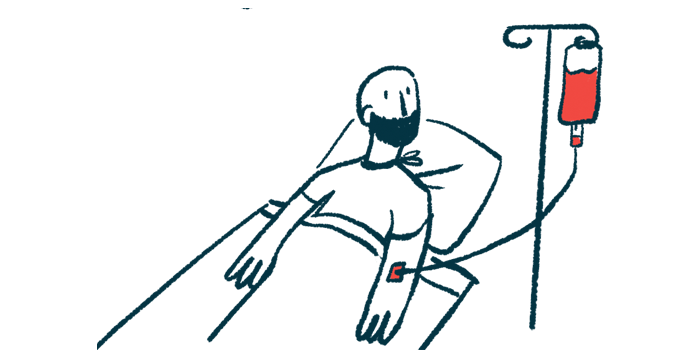Safety with Soliris in real world matches that of clinical trials, study finds
Analysis of its clinical use in Japan finds infections a frequent risk

The safety profile of Soliris (eculizumab) in real-world practice is similar to that reported in clinical trials, according to a large analysis of data from Japan.
“This is the largest safety dataset on [Soliris] in Japan derived from more than 10 years of clinical experience,” the researchers wrote. “No new safety signals were observed and the safety profile of [Soliris] was consistent with that in previous clinical trials and international real-world safety analyses.”
An infusion therapy, Soliris is approved to treat atypical hemolytic uremic syndrome (aHUS) and other diseases driven by overactivity of the complement cascade, like myasthenia gravis (MG), and paroxysmal nocturnal hemoglobinuria (PNH), in Japan, the U.S., and the European Union, among other countries.
Soliris, by Alexion, widely approved to treat aHUS and other diseases
The study, “Real-world safety profile of eculizumab in patients with paroxysmal nocturnal hemoglobinuria, atypical hemolytic uremic syndrome, or generalized myasthenia gravis: an integrated analysis of post-marketing surveillance in Japan,” was published in the International Journal of Hematology.
Soliris works to block the activation of a part of the immune system called the complement cascade. In clinical trials, it was shown to effectively reduce disease activity in aHUS, MG, and PNH.
But like any medication, Soliris can cause side effects. In particular, since it is designed to lower part of the immune system’s activity, its use can increase the risk of infections.
Scientists at institutes across Japan, working with scientists at Alexion, which markets the treatment, evaluated the safety profile of Soliris when used in real-world clinical settings, outside of the rigorous environment of clinical trials.
“Post-approval studies in a real-world setting are essential to confirm the safety profile of orphan drugs,” they wrote. Of note, orphan drugs are medications intended to treat rare diseases.
Their analysis included safety-related data on more than 1,000 people treated with Soliris in Japan following its approvals, including 192 with aHUS, 780 with PNH, and 83 with MG. About half of the patients were female and over 90% were adults.
Headache was the most common side effect associated with Soliris, results showed. Researchers noted that headache usually was reported by patients within a week of starting treatment with Soliris, and this side effect generally resolved with time.
Infections also were frequent, with the common cold (nasopharyngitis) being the most often reported type of infection. Influenza (the flu) and pneumonia also were fairly common. Other commonly reported safety issues included hemolysis (red blood cell destruction), impaired kidney function, and worsening of the underlying disease.
Kidney problems were the most common serious side effect in aHUS patients.
Other reported serious issues included hemolysis, pneumonia, and some other infections. A total of 236 deaths were reported (13.6% of total study group), but the cause in most cases (175) was determined to be unrelated to Soliris treatment.
Preventive vaccines urged for people using Soliris, due to infection risk
“Consistent with other reports, [Soliris] was well-tolerated and the safety profiles in all three indications were consistent with those reported in the clinical trial and in previous reports,” the scientists wrote, adding that no new safety issues were identified.
They noted that, due to the high risk of infections with Soliris, it’s important for patients using the therapy to receive appropriate preventive vaccines and to undergo monitoring for infections. Vaccination against meningococcal infection specifically was recommended.
“Because patients treated with [Soliris] have increased risk of infection, physicians should continue to monitor and educate patients to help mitigate the risk of serious infections,” they wrote.







